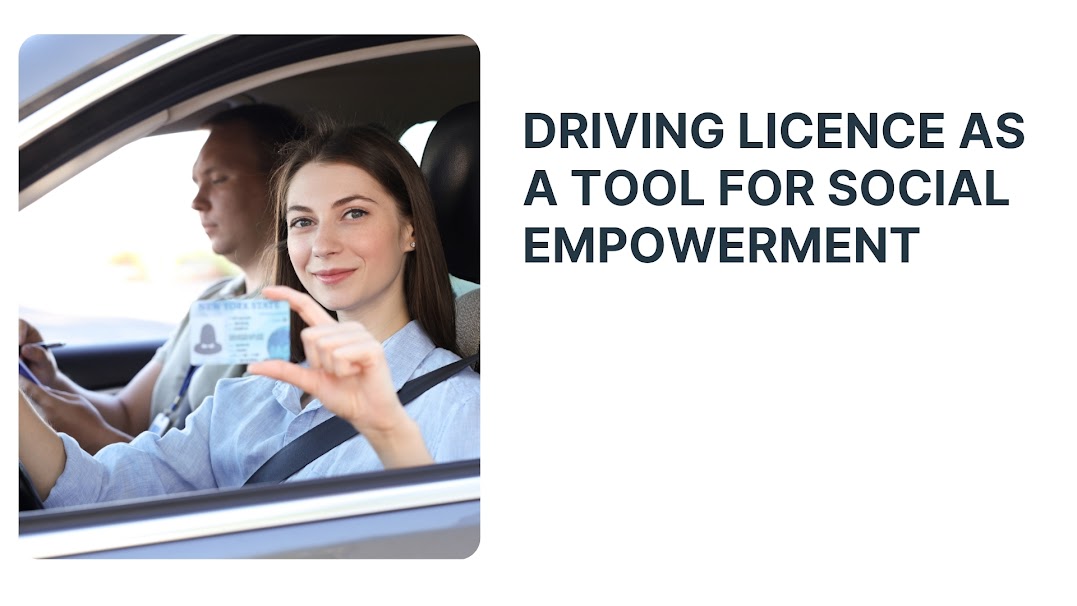A driving licence, often perceived as a mundane identification document, holds the profound potential to transform lives and empower individuals across social, economic, and cultural dimensions. In both urban and rural landscapes, access to mobility translates to access to opportunity. As the world becomes more interconnected and driven by technology, the significance of a driving licence as a tool of empowerment becomes even more pronounced. This document serves not only as legal permission to operate a vehicle but also as a key that unlocks independence, employability, and dignity.
Empowering Through Mobility
Mobility is more than just the act of moving from one point to another. It is intrinsically linked to freedom—freedom to access healthcare, education, jobs, markets, and social gatherings. A driving licence empowers individuals, especially those in underprivileged or remote communities, by granting them the ability to take control of their movement. For women in conservative regions, for example, obtaining a driving licence symbolizes a step toward self-reliance and liberation from restrictive norms. Similarly, for individuals with disabilities, tailored driving programs and special licences are an acknowledgment of their right to mobility and inclusion.
Economic Independence
The economic implications of possessing a driving licence are vast. In countries like India, where public transport does not reach every corner, having a licence significantly enhances employability. Jobs in transportation, delivery, logistics, ride-sharing, and personal driver services are directly accessible to those with valid driving licences. Additionally, small entrepreneurs benefit from licences by using personal vehicles to run mobile businesses or offer delivery services. In rural areas, farmers can transport their produce more efficiently with a vehicle and a valid licence, reducing dependency on middlemen and increasing profits.
Education and Skill Development
The process of obtaining a driving licence in many countries now includes theoretical and practical training that enhances cognitive skills, decision-making, and awareness of legal responsibilities. This educational aspect contributes to personal growth and instills a sense of accountability. Driving schools, particularly those focused on underrepresented groups such as women or people with disabilities, double as skill development centers. They serve as platforms where individuals can build confidence and learn life skills that extend beyond driving.
Identity and Inclusion
In many regions, a driving licence is a primary form of identification. For those without access to formal ID documents, acquiring a driving licence can facilitate access to banking services, voting rights, and government welfare programs. Marginalized communities, including migrants and internally displaced persons, often find a pathway to social inclusion through driving licences. The document becomes more than a legal requirement—it becomes a recognition of one’s identity and a step toward civic inclusion.
Women’s Empowerment
Globally, the gender gap in driving licence ownership remains a reflection of broader societal inequities. Empowering women to obtain driving licences can catalyze change in numerous areas. It enables greater participation in the workforce, reduces dependency on male relatives for transportation, and opens up new avenues of entrepreneurship and community leadership. Government initiatives aimed at training and licensing women drivers, particularly in male-dominated industries like logistics or public transport, are powerful examples of how policy can drive empowerment.
Safety and Autonomy
Having a driving licence is often synonymous with control over one’s safety. For individuals in volatile or abusive environments, the ability to drive away from danger can be life-saving. This is particularly relevant in domestic violence cases, where transportation independence can make the difference between entrapment and escape. A driving licence can also ensure better emergency response, enabling individuals to transport themselves or loved ones to medical facilities when public transport is unavailable.
Youth Empowerment
Young people view driving as a rite of passage. For youth, especially in developing countries, obtaining a licence marks a transition into adulthood, responsibility, and self-sufficiency. Programs that help young people obtain their first licence—especially those that combine training with mentorship—equip them with practical tools to navigate the world, both literally and metaphorically. In a job market that values diverse skill sets, being a licensed driver can set candidates apart.
Digital Empowerment
With the advent of digital licences and online applications, the driving licence space has become a frontier for digital literacy. Navigating online RTO portals, completing digital training modules, and managing documents in app-based wallets introduce citizens to broader digital ecosystems. This not only boosts efficiency and transparency but also helps bridge the digital divide. For women, elderly people, and others who may be digitally excluded, such interactions can serve as important first steps into the digital world.
Social Equity and Justice
Access to a driving licence must be equitable. Discriminatory practices, corrupt intermediaries, or inaccessible systems can marginalize already disadvantaged populations. Advocacy for transparent, inclusive, and efficient licensing processes is essential to ensure that a driving licence truly serves as a tool for empowerment. Public interest litigation and citizen-led reforms have already challenged monopolistic practices in driving education, pushing for systems that are just and representative.
Environmental Consciousness and Responsibility
While empowerment through driving is undeniable, it must be accompanied by an ethic of environmental responsibility. Teaching eco-friendly driving techniques, promoting electric vehicles, and incorporating sustainability modules in driving schools are crucial ways to ensure that this empowerment does not come at the planet’s cost. Licenced drivers who understand their environmental impact are more likely to adopt green habits such as carpooling or using hybrid vehicles.
Know more about:- Know the process of Driving Licence renewal in India
Conclusion
The driving licence is not merely a bureaucratic artifact; it is a powerful tool that can uplift individuals and transform communities. Whether by opening doors to employment, enabling social participation, promoting gender equality, or enhancing safety and autonomy, a licence has the power to change lives. As we move towards a future of smart cities, inclusive policies, and sustainable mobility, recognizing and enhancing the social empowerment potential of driving licences must be a key part of development agendas. Empowerment on wheels is not a metaphor—it’s a movement.


